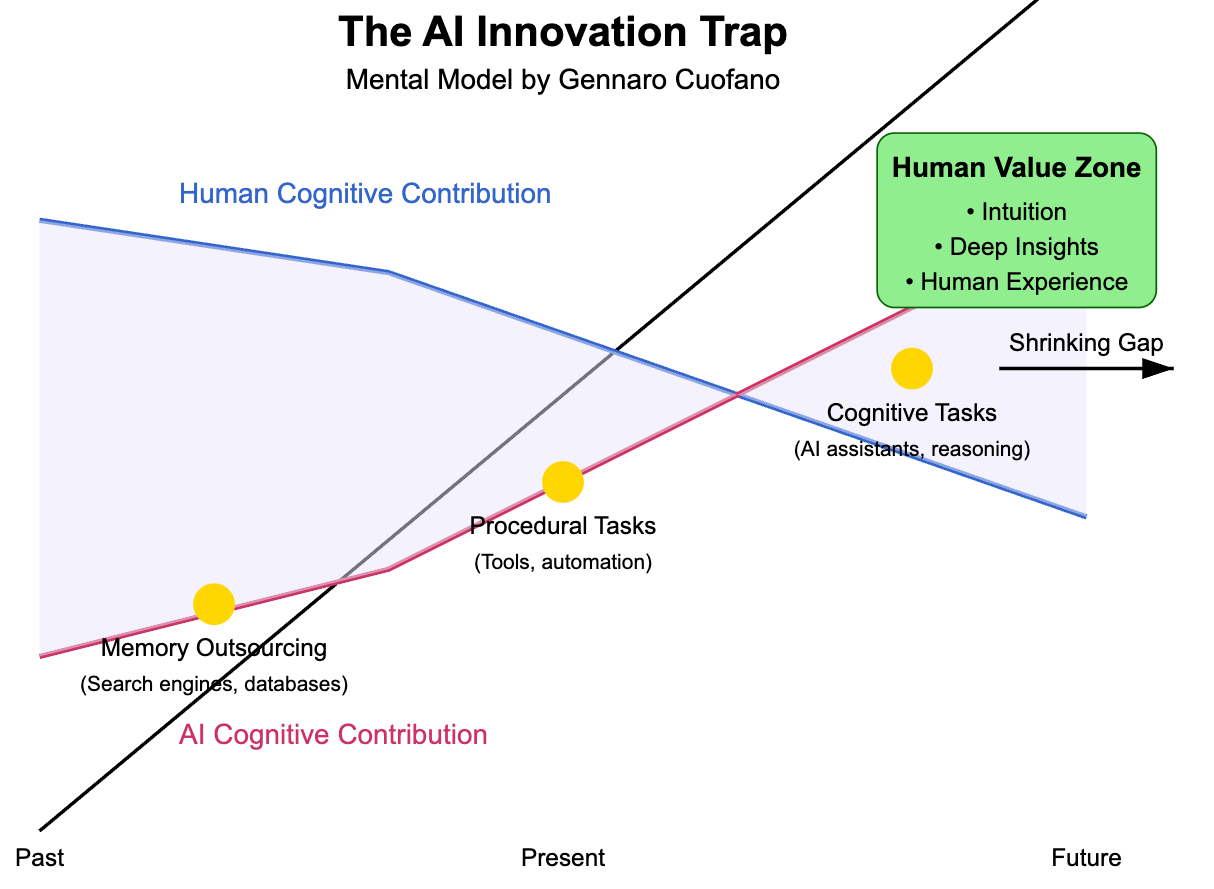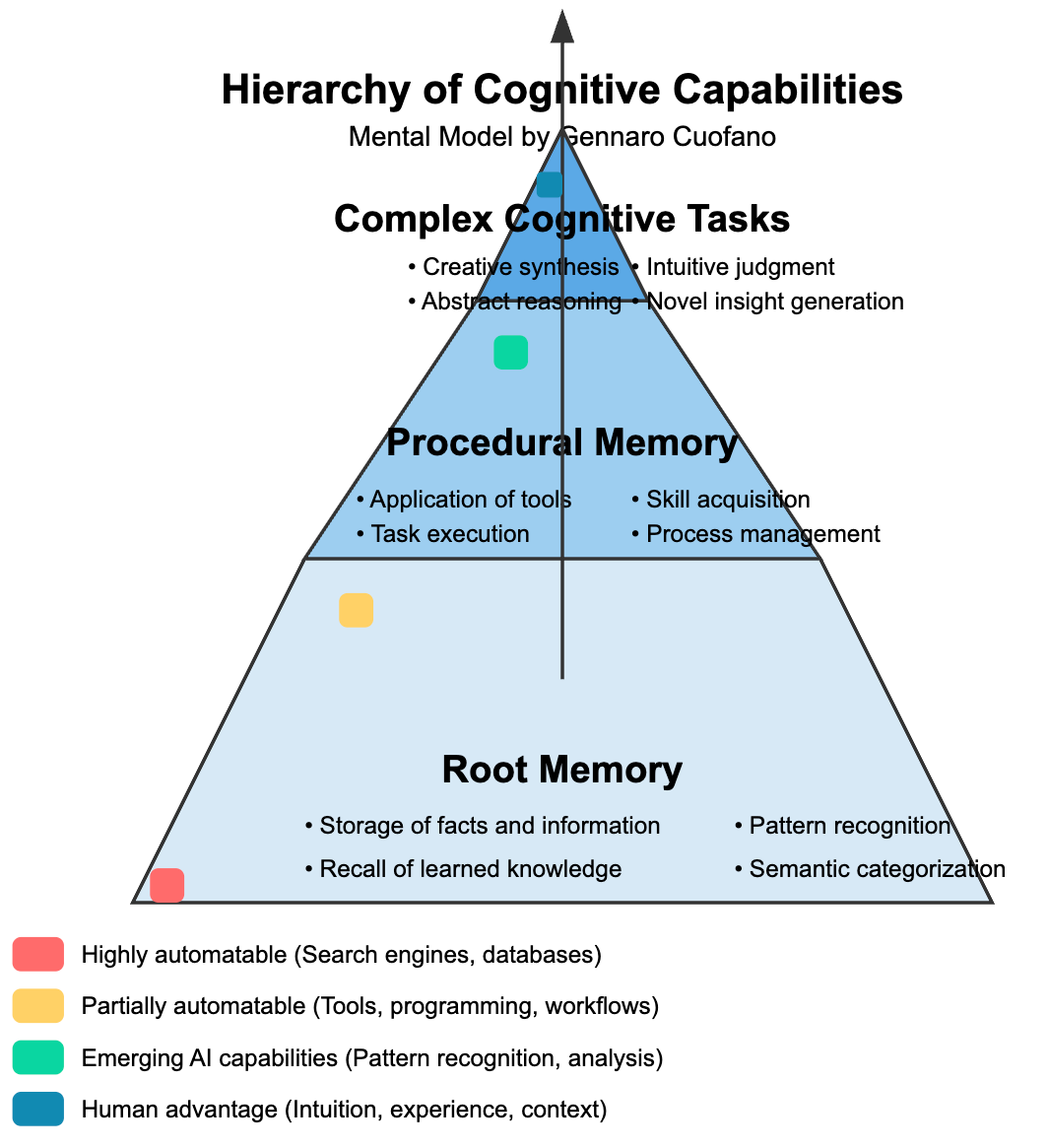The AI Innovation Trap
How do you find meaning in a world where AI can do way more things than we used to define us, as humans, in a professional environment over the last decades?
If the 20th century has represented the transition from manufacturing to a service economy, and if the professional side does contribute a good chunk of most humans' identities, how do we learn to make sense of what’s next?
That’s not an easy thing to grapple with. And I am also going through this process myself.
I see it as an “Innovation Trap of AI”, where AI takes over increasingly complex cognitive tasks that humans traditionally performed.
In the last issues, I’ve covered and defined the growing space that AI occupies within the productivity spectrum.
Or how, as AI grows more capable, the human role in shaping outcomes diminishes, shrinking the impact gap between human and machine contributions.
Yet, the flip side is that you and the AI can be 10- 100x more productive on a task. This sounds quite bombastic today, where AI can at best lead us to a 2- 3x productivity (which is a lot), but it is happening as we speak.
Historically, humans outsourced certain cognitive functions—like memory—to machines (e.g., using Google to recall facts), while retaining and refining their ability to use tools and procedural memory to solve complex problems.
This division made root memory a commodity but kept humans central to higher-order tasks.
However, as AI begins to master memory, procedural, and even creative or strategic functions, the space left for meaningful human contribution narrows.
This creates an innovation trap: the more capable AI becomes, the harder it is for humans to add unique value—unless they leverage distinctly human capabilities like intuition, deep insight, and a refined understanding of the world.
These qualities, rooted in lived experience and nuanced reasoning, become more critical than ever in an AI-saturated landscape.
I’m still grappling with it to find what might be next.
One positive thing about myself is that I’ve always struggled to give myself a narrow label, such as “I’m an author, a salesperson, an analyst, a blogger,” or something similar.
But I know I’m a businessperson. As such, I can translate my understanding of the business world into many domains, depending on what becomes feasible with the technology as it progresses.
In short, like many others, I find myself “automated” in things that used to be considered incredible skills, like writing, just a few years ago.
On the other hand, I’m also quite excited because now, alone with the AI, I can do many more things that make me so much better and provide more value to people like you who read my stuff.





